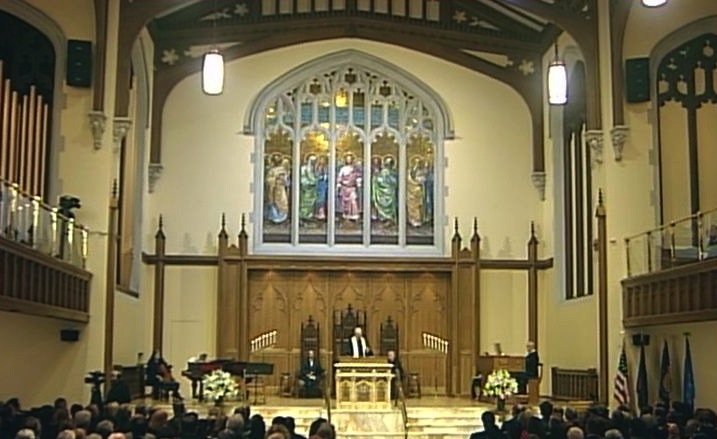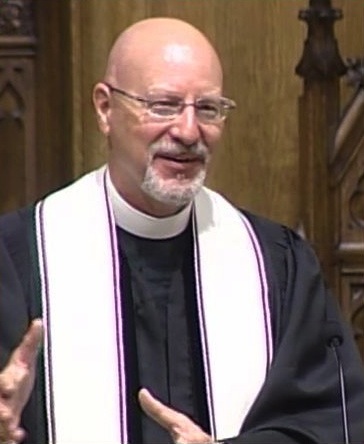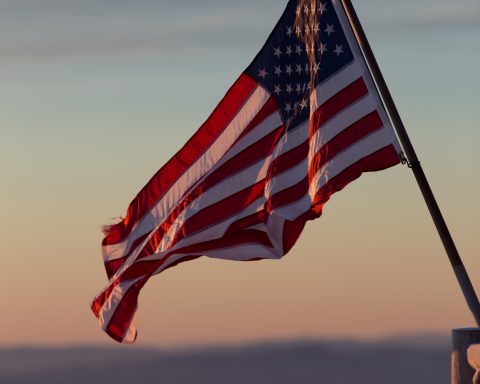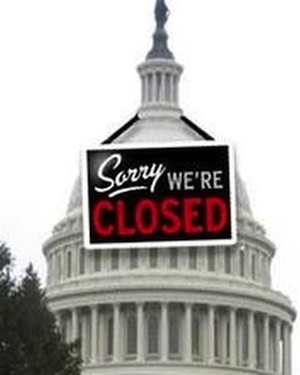
A Meditation given by Rev. Fred D. Milligan, Jr., at the memorial service of William W. Scranton, held August 14, 2013, at Covenant Presbyterian Church in Scranton, PA. Mr. Scranton was a devout Presbyterian and influential Republican politician who served as the US Representative for Pennsylvania’s 10th District from 1961-1963, the 38th Governor of Pennsylvania from 1963-1967, and the US Ambassador to the United Nations from 1976-1977. For a full bio of Mr. Scranton, click here.
This meditation is posted in conjunction with an editorial by Chris Iosso on the October 2013 government shutdown.
Scripture:
You may be wondering, “Why are we reading the story of the woman at the well at a memorial service?” Blame it on Bill.
As far back as 1976 or so, in response to a request made by the pastor at that time, he began to provide the office here at the church, as well as his family, with detailed instructions for his memorial service, adding and changing these ideas occasionally across the years. Gracious as always, he took pains to point out that the family should not feel slavishly bound by his ideas about this “because” as he put it, “I obviously won’t be there.”
“If, however, anybody is interested in what I want, here it is.”
And so, much of the service today, including the hymns and scripture readings from Micah, Ecclesiastes, John and Psalm 23 are directly from those letters. And as you will note later when we say the Lord’s prayer, which he also suggested, we have changed one word from the original words of scripture and tradition, substituting “governance” for “kingdom”, because, as Bill wrote: “I do not like kingdoms, I like democracies.”
There was never any doubt in his mind that this service would be held right here in the church his father helped to build. Right here, in this sanctuary, with its beautiful stained glass Scranton window which many of you can see to my right that was donated by the family after the building was constructed in 1903. Right here, where I walked up these steps and stand behind the pulpit both given by the family. Right here where the governor and his wife Mary worshiped with their four children. Right here where as recently as 6 weeks ago he sat in his usual seat in the back, arriving just after services began and leaving just before the benediction.
___________________________________________
As you will note later when we say the Lord’s prayer, we have changed one word from the original words of scripture and tradition, substituting “governance” for “kingdom”, because, as Bill wrote: “I do not like kingdoms, I like democracies.”
___________________________________________
So no celebration of the life of Bill Scranton would be complete apart from a reflection on his faith. Much of what his faith meant to him can be gleaned from his stellar record upon the stage of American and even international history and events and the business world over the last 70 or so years. This is territory well traversed in biographies, television documentaries and newspaper articles. So for the brief time I have before you, I will confine my remarks to what we can learn about his faith from his own words and from the passages of scripture he has suggested we read here.
The passage from Micah seems rather straight forward with his appeal to what God requires of us: “To act justly and to love mercy and to walk humbly with your God.” And yet as we will learn from his own words, in a few moments, Bill knew this to be harder than it may seem.
The passage from Ecclesiastes is heard often at services such as this. It reminds us that life is never simple, but partakes of the rhythms of the universe in its changing seasons and calls forth in each of us, different capacities and emotions suited to the times in which we live. It affirms our humanity and blesses us in all our ambiguity. However, while Bill may have been comforted by these aspects of the passage, he was troubled by them as well.

In a Commencement speech before the Penn State graduates in 1974 he had admitted that “. . . [N]obody in this world of ours, that I know, is not immoral at one time or another” (pg. 202, Wolf). He had no illusions that he was perfect. Or perhaps the passage from Ecclesiastes reassured him that, as James Russell Lowell wrote, “new occasions teach new duties” which may at other times be not only unsuited but actually wrong.
However, Bill wanted to insist that some goods are eternal and objectively true despite changing time and tide. “Most of us at least try to think of what is right or wrong when we are coming to a decision” (pg. 202, Wolf). So our reading from Ecclesiastes is one verse shorter than is commonly the case because he instructed that we use the reading “without the reference to hate – I do not hate.” He can follow Ecclesiastes, but only to a certain point. After that he parts ways with that relativist preacher.
And of course the 23rd Psalm is here for its assurance and comfort for those who grieve the passing of their friend, father, grandfather, husband, that once we leave this mortal coil we are in the hands of a merciful God.
But why, we ask again, did he suggest we read the story of the woman at the well? Many of you may have heard sermons preached on this passage of how Jesus, in breach of several religious laws, strikes up a conversation with a lone Samaritan woman in order to assure her that she is loved by God despite the fact that she may not have worshiped or acted in accordance with Jewish or even Samaritan religious law. God’s mercy trumps human institutions. If this is the reason Bill chose this passage, it is enough. But there may be more.
For while the Gospel writer seems to be affirming the Lordship of Jesus and the Jewish faith over all religions, (“salvation is from the Jews”) one could also read in these lines a kind of negation of all religious traditions. For Jesus tells the woman: “the hour is coming, and is now here, when the true worshipers will worship the Father in spirit and truth, for the Father seeks such as these to worship him.God is spirit, and those who worship him must worship in spirit and truth.”
___________________________________________
“If the moral quality of our country is to be restored, it will not be by vindictiveness or even by puritanical rectitude. It will come, I hope and pray, from the re-discovery that power without humanity is unworthy.” -William W. Scranton
___________________________________________
In a world in which religious differences are complexly intertwined with and are often appealed to as bases for political conflict, this is a message we need desperately to hear. And perhaps Bill had heard it.
Despite the importance of his faith to himself, Bill would never wish to see it used as the basis for violence as he had certainly seen throughout his years of public service. He yearned for that day when all people of every faith would find common cause.
Such an interpretation would fit with one who valued humility among the highest of virtues.
In that same 1974 commencement speech I mentioned earlier, He says: “If the moral quality of our country is to be restored, it will not be by vindictiveness or even by puritanical rectitude. It will come, I hope and pray, from the re-discovery that power without humanity is unworthy” (Pg. 204, Wolf).

“In short, what I’m trying to say to you is this. This is a specially proper time to reaffirm what some people have called the gentler virtues, though I happen to call them the stronger ones. Virtues which so often are trampled upon in a climb for power. Decency and honesty, that’s easy. Easy to say – it’s not so easy to do. Humility and compassion. Much more difficult. Humility and compassion by all of us. Humility in most peoples’ minds is something meek and mild and trampled upon. It isn’t. It’s one of the strongest virtues there is. It’s the modest sense of one’s own importance…”
“If we could ever get ourselves in focus, then it would be far easier to understand where the priorities are and what is right to do. Then there is compassion which, once we have ourselves in focus, is a concern for everybody else” (pg. 204, Wolf).
Humbly getting “ourselves in focus” was accomplished by Bill through regularly coming before God in worship and prayer so that he might better understand that even though his lot in life may have been cast as one of great privilege, his role would be one of tremendous responsibility. In Psalm 90 we read the words of a prayer that Bill took to heart: “Lord teach me to number my days so that I may gain a wise heart.”
In Bill Scranton’s relationship with his God, he found an answer to this prayer, and because of that the world was blessed. Those who would seek to honor him would best do so by walking the same path that he chose to follow. “To act justly and to love mercy and to walk humbly with your God.”
References:
- Unpublished letters on file with Covenant Presbyterian Church
- George D. Wolf, William Warren Scranton: Pennsylvania Statesman, Keystone Press, University Park and London, 1981
- Holy Bible: New Revised Standard Version






Unbound Social